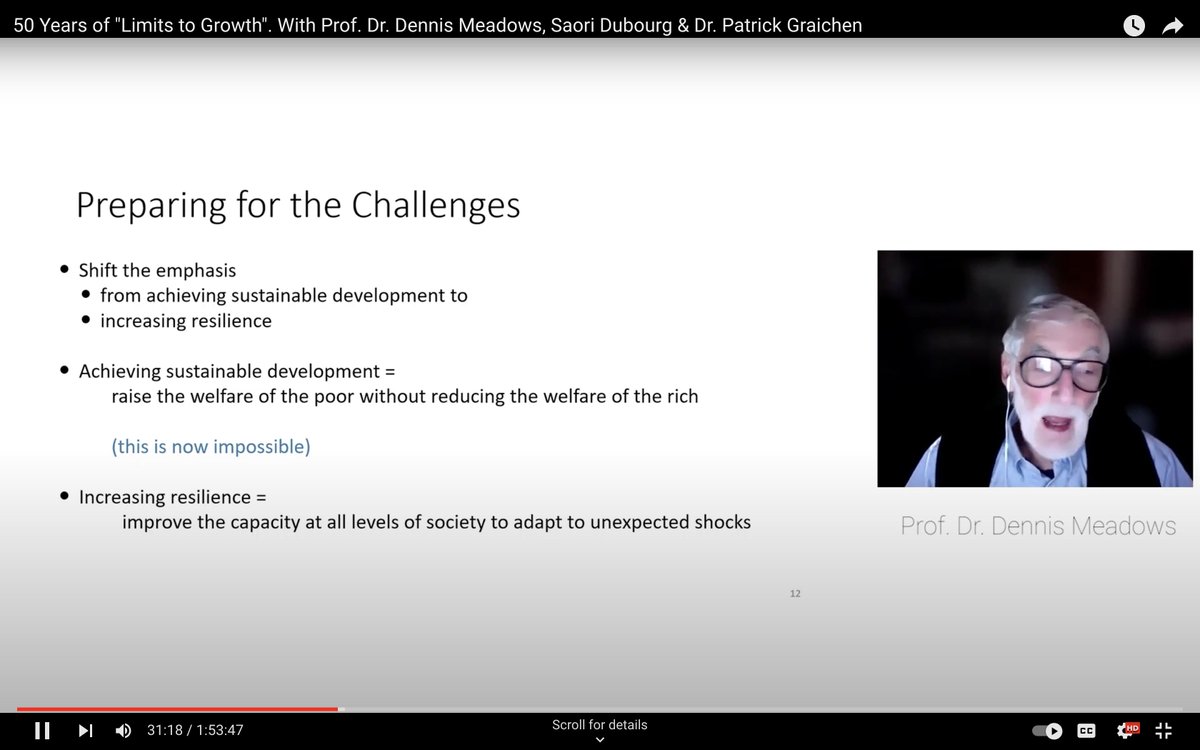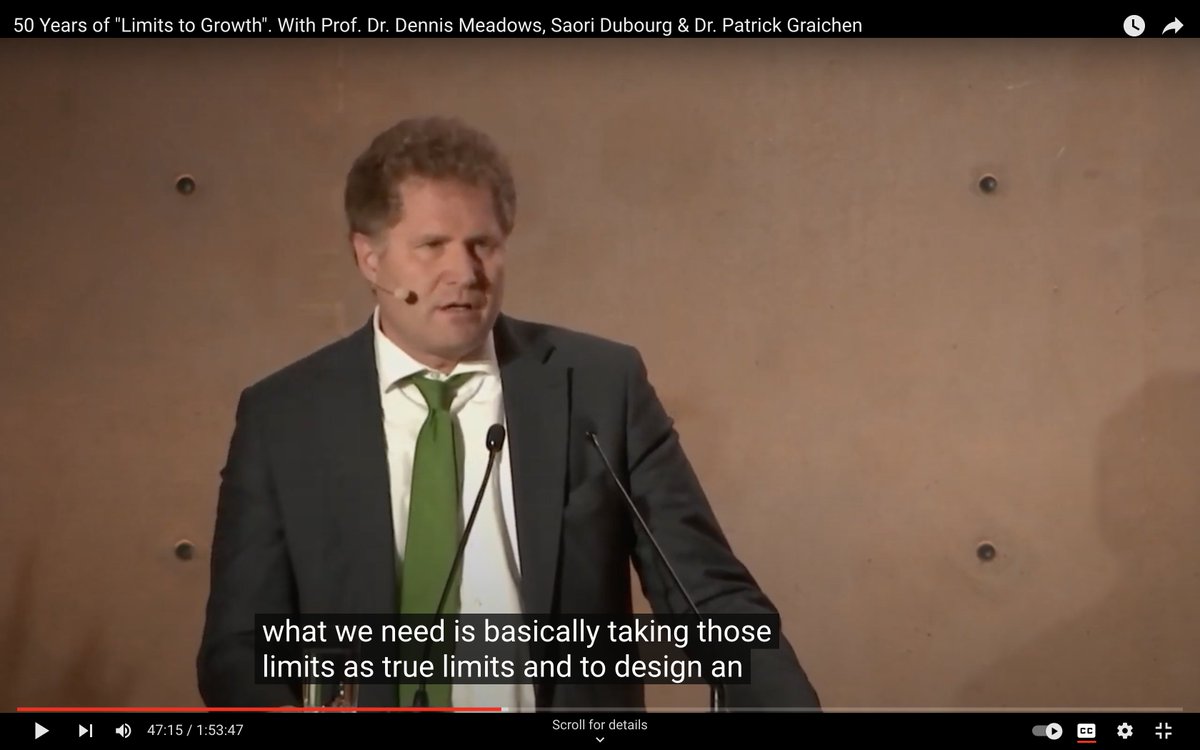Pandemic policy 2020, 2021, 2022 and 2023:
https://twitter.com/buitengebieden/status/1663663618381021184
2. Our friends in Hollywood work hard to model the real world for us through popular culture. Winning by attrition describes sarbecovirus and human monkeypox virus (hMPXV) policy quite well, whether you think of either virus as pandemic or newly ‘endemic.’ 

https://twitter.com/bpoppenheimer/status/1662900443767242756


3. These very human dynamics are fascinating to systems thinkers. Two viruses - the poxvirus in its evolutionary infancy, not yet efficiently airborne, the coronavirus evolving fast already - are starting to downregulate the exuberant expression of humanity on this lovely planet.
https://twitter.com/TmWesterwald/status/1663801930823483400
4. By July 2020, @mylesbyrne saw SARS-CoV as “Wolbachia for humans,” an apt metaphor to ecologically literate people. It may be humane to slow or even arrest it by policy - I think most people would prefer “living without Covid.”
The assessment is less clear at population level.
The assessment is less clear at population level.
https://twitter.com/mylesbyrne/status/1279400774133583872
@mylesbyrne 5. In this 2022 @ClubOfRome Berlin event, Dennis Meadows proposed to banks and policymakers one simple action: invest 10% of the money invested in research on how to sustain growth into research on how to manage equitable, peaceful and controlled decline. 







@mylesbyrne @ClubOfRome 6. The 1% rule holds for ClubofRome events too. Assume that in 100 people who talk about a given question - here limits to sustainability -, maybe one understands it. The most interesting feature of the SARS virus is to give visual cues on who the 1% are. 
https://twitter.com/_ppmv/status/1663656634315407362

@mylesbyrne @ClubOfRome 7. Inside joke: @P_Graichen misreads Limits to Growth. The lesson of the 1972 report was the opposite of his popular reading. A system runs out of problem-solving skills (its "ability to cope") long before physical limits like climate, ecology are reached. 

https://twitter.com/_ppmv/status/1566118548531040259


@ClubOfRome @P_Graichen 8. Dennis Meadows said in 2006 that within 10-30 years, population, energy and natural resource consumption growth would turn negative. Expect more change within 25 years than over the past 100.
You need less sustainability PR, more real systems thinkers.



You need less sustainability PR, more real systems thinkers.




@ClubOfRome @P_Graichen 9. Every time Dennis narrates his first presentation in the Smithsonian Institute in DC 1972, he mentions how nervous he was as he thought, "These great people know all we have to say, it's so obvious." - Of course now we know none of them understood (his words). #OnePercent rule 



10. This causal loop diagram explains why NIAID Dr. Tony Fauci, WHO Chief Scientist @doctorsoumya, and even @CDCDirector Dr. Walensky, here unmasked in a funny photo with @CPHO_Canada, Harjit Sajjan, had to go once they stood up for N95-grade PPE for HCWs. 
https://twitter.com/CPHO_Canada/status/1617964484215320576

@doctorsoumya @CDCDirector @CPHO_Canada 11. Precise for analysts: @CDCDirector resigned around the time the WHO PHEIC ended, the CDC map was turned green by entirely unscientific algorithms, and after the end of the Public Health Emergency (PHE) and resignation of CoV coordinator Jeff Zients.
https://twitter.com/smenor/status/1663113549936484353
@doctorsoumya @CDCDirector @CPHO_Canada 12. How can society go from addiction to adaptation in policy? (1) Eliminate feedbacks that focus governance on the perceived state of the system rather than its real state; (2) concrete actions. As @dbdugger outlines, a challenge even at individual level. 



https://twitter.com/dbdugger/status/1663876104824795136




13. War of attrition: In @RealCheckMarker's image, Beta-CoVs hold cells as sex slaves. Unlike influenza, which kills, they replicate smoothly, SARS-CoV-2 thanks to Orf8 histone mimicry. They even protect the cell to extend its lifecycle. Zombie sex slaves. 


https://twitter.com/mrmickme/status/1664516797486501888



@RealCheckMarker 14. I use the analogy of human trafficking, a structurally similar challenge to public international law. Human traffickers or slavers keep victims alive. The controlled cycle can break down as the cell's life cycle ends and cause runway viral replication.
https://twitter.com/_ppmv/status/1657080350034518020
@RealCheckMarker 15. This is why most 'experts', even professors who are no SARS/MERS experts, are blatantly wrong about SARS-CoV. They don't read or draw wrong the conclusions.
I'm sorry, both ethics, epistemology and epidemiology will continue to be complex for a while.
I'm sorry, both ethics, epistemology and epidemiology will continue to be complex for a while.
https://twitter.com/RealCheckMarker/status/1626744754355437568
@RealCheckMarker 16. Link: wikipedia articles are great to share because English isn't most people's first language and they come with good translation. Also they are frequently updated (if enough volunteers chime in); really one of the great successes societal learning. en.wikipedia.org/wiki/Betacoron…
@RealCheckMarker 17. It works both ways. @kali0x2a noted that for example the English-language wikipedia systems analysis entry is strangely unstructured and unprofessional ("and so on"?) Maybe someone wants to edit it?
The German entry is excellent; I translated it here. de.wikipedia.org/wiki/Systemana…


The German entry is excellent; I translated it here. de.wikipedia.org/wiki/Systemana…



• • •
Missing some Tweet in this thread? You can try to
force a refresh























